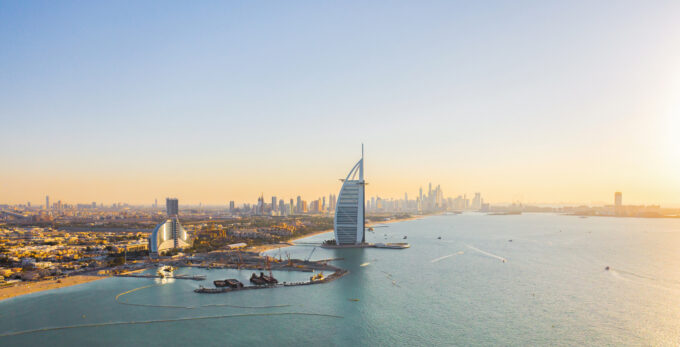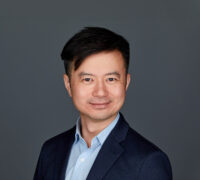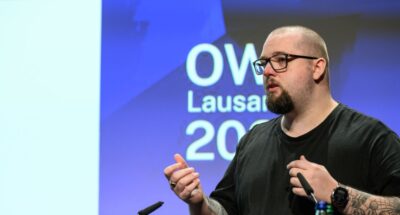
The critical cybersecurity lesson from the Microsoft outage
The IT debacle is a big reminder that cybersecurity is not just about defending against malicious attacks but also about ensuring system availability. ...
by Howard H. Yu Published 22 February 2024 in Technology • 6 min read
In recent headlines, OpenAI’s co-founder Sam Altman has been making waves, not only for his abrupt departure from the firm followed by a swift return but also for his ongoing discussions with investors, including the United Arab Emirates (UAE), to raise up to $7tn for an ambitious project which aims to expand the global capacity for building computer chips, particularly those powering generative artificial intelligence systems like OpenAI’s ChatGPT.
Such a monumental undertaking could potentially reshape the semiconductor industry, which is currently grappling with shortages as the demand for chips to power AI skyrockets. For decades, dominant players like Taiwan’s TSMC have ruled the roost, commanding a lion’s share of global chip production. However, the UAE, though currently holding a small slice of the semiconductor manufacturing pie, is emerging as a contender in the chip wars. Strategic collaborations, especially with tech giants like OpenAI, signal the UAE’s potential to carve out a significant role in the industry.
Positioning itself as a hub for AI chip manufacturing, the UAE aims to cater to tech behemoths like Meta, Google, and Microsoft, all of whom are delving into custom chipsets. The urgency for chips underscores the pressing need for processors, particularly GPUs – vital for training advanced AI models like ChatGPT. US-based Nvidia, a key player in this space, has witnessed a meteoric rise in its share price over the past year to above $1.8tn today. This highlights the indispensability of semiconductor supply to the AI revolution.
Acknowledging the risks of dependence on single suppliers like Nvidia, the global tech industry is eager to diversify its chipset sources. This sets the stage for the UAE to step into the semiconductor spotlight, leveraging its resources and capabilities to bolster chip development efforts and foster a new cluster of semiconductor innovation in the Middle East.
This new cluster could provide an alternative to the existing dominant players and contribute to diversifying the global semiconductor supply chain, potentially making it more resilient.
“Sam Altman's bold quest for trillions to revamp semiconductors aims to transform AI chip scarcity into a tech abundance, fueling global innovation and growth.”
Nevertheless, venturing into semiconductor manufacturing poses formidable challenges. Establishing the requisite technical expertise and infrastructure is a Herculean task that demands hefty investments and skill development. The industry’s domination by established players in Asia, epitomized by Taiwan’s TSMC and China’s SMIC, further complicates matters for the UAE. Competing against these giants necessitates not only substantial resources but also a long-term commitment to innovation and excellence.
Yet, the UAE’s attractiveness as a potential partner in AI infrastructure and chip manufacturing is now being crystallized. Consultants PwC forecasted that AI could contribute up to 13.6% to the UAE’s GDP by 2030, underscoring the country’s drive to advance AI technologies. Notably, the UAE has already made substantial investments in AI infrastructure, including the development of the world’s largest supercomputer for AI training by G42 (and others), an AI company based in Abu Dhabi.
The UAE’s collaboration with US-based Global Foundries, one of the world’s largest semiconductor chip makers, partially owned by the UAE’s Mubadala Investment Company, provides a strategic advantage. OpenAI and Altman may find partnering with the UAE advantageous due to its connection to this major player in the semiconductor industry.
Beyond financial considerations, the UAE must overcome challenges in attracting talent, such as convincing American engineers to relocate from established tech hubs like California or enticing Taiwanese engineers to leave Taipei. Offering incentives like tax benefits, a high standard of living, quality education, and vibrant cultural and entertainment offerings could prove instrumental in this effort to attract and retain the highly specialized expertise required in semiconductor manufacturing. The industry’s narrow labor pool necessitates specific skills and knowledge, making talent attraction and retention crucial for success.
Doing so would not only contribute to the success of the UAE’s semiconductor industry but also serve as an effective industrial policy.
One of the major benefits of developing an AI chip manufacturing industry is the diversification of the UAE’s economy away from its traditional reliance on oil. The establishment of AI chip manufacturing facilities would create employment opportunities in high-tech sectors, including research, development, manufacturing, and related services. This would help the UAE reduce its dependence on oil revenues and create a more resilient and sustainable economy.

However, the UAE’s aspirations to become a global leader in AI have thrust it into the center of geopolitical tensions between the US and China over technology. Diplomatic balancing acts may be necessary to maintain positive relations with both Western countries and China, given the UAE’s historically strong economic ties with both.
Illustrating this delicate dance, G42 recently divested its stakes in Chinese companies, including tech giant Byte Dance, to assuage US concerns about ties with China. G42’s chief executive, Peng Xiao, said in December 2023 that G42 “cannot work with both sides”, underscoring the complexities of navigating this landscape.
While the US has intrinsic motivations to safeguard its technological superiority, China is still catching up in terms of technology and the country is eager to learn. Beijing may see the emergence of additional players in the semiconductor industry, such as the UAE, as opportunities for collaboration rather than direct competition. If the UAE were to further develop its capabilities and become another center for cutting-edge chip manufacturing technology alongside Taiwan, it could potentially serve as a partner for China in the future, aligning with China’s interest in expanding its network of allies.
Despite these challenges, the UAE has a track record of adeptly managing diplomatic relations with global powers. Its diversified trade relationships demonstrate this. Unlike some other countries, which have more concentrated trade relationships with specific regions, the UAE trades heavily with a wide range of global powers including China, India, Japan, Turkey, and Switzerland. This suggests that the UAE actively engages with multiple countries and regions rather than relying heavily on any one partner.
Additionally, its procurement strategies for military equipment demonstrate a nuanced approach to navigating geopolitical dynamics. By sourcing drones from multiple suppliers, including both Western and non-Western powers, the UAE avoids aligning too closely with any single geopolitical bloc. This demonstrates the country’s ability to maintain a degree of independence in its foreign relations.
Nevertheless, developing the technical expertise and infrastructure required for semiconductor manufacturing remains a complex and time-consuming process. It involves extensive research, investment, and skill development, which may take years or even decades to accomplish. Yet, if the UAE succeeds, it could reshape global semiconductor manufacturing as we know it.

LEGO® Chair Professor of Management and Innovation at IMD
Howard Yu, hailing from Hong Kong, holds the title of LEGO® Professor of Management and Innovation at IMD. He leads the Center for Future Readiness, founded in 2020 with support from the LEGO Brand Group, to guide companies through strategic transformation. Recognized globally for his expertise, he was honored in 2023 with the Thinkers50 Strategy Award, recognizing his substantial contributions to management strategy and future readiness. At IMD, Howard directs the Strategy for Future Readiness and Business Growth Strategies programs.

19 July 2024 • by Öykü Işık in Technology
The IT debacle is a big reminder that cybersecurity is not just about defending against malicious attacks but also about ensuring system availability. ...

17 July 2024 • by Michael R. Wade, Evangelos Syrigos in Technology
Companies that excel in both digital and sustainable transformation attract a stock market premium, according to research. So, how do you tap into that value? ...

28 June 2024 • by Öykü Işık in Technology
Google’s latest reprieve for third-party cookies will be only temporary, warns IMD’s Öykü Işık ...

27 June 2024 • by Jamie Woodruff in Technology
To safeguard your organization from persistent cyber threats, look beyond technology and focus on educating your people, says prominent cybersecurity expert and ethical hacker Jamie Woodruff. ...
Explore first person business intelligence from top minds curated for a global executive audience